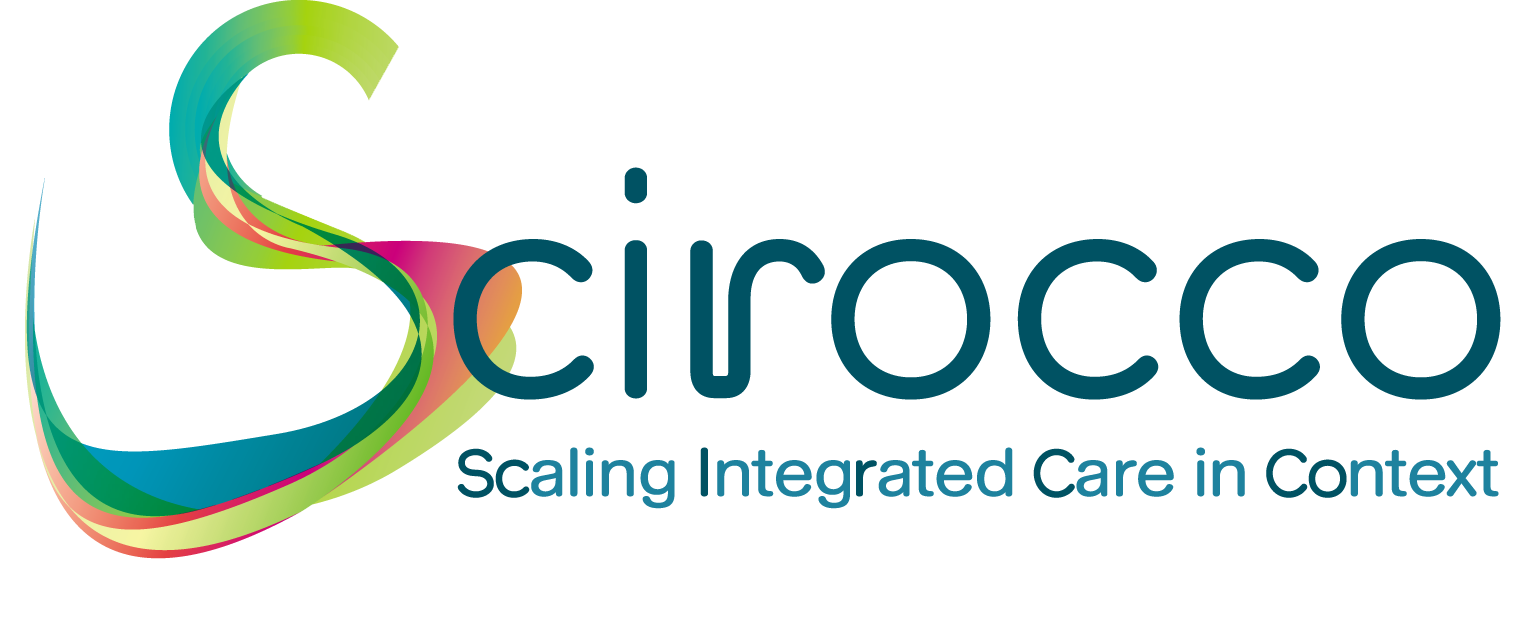Regions’ Self Assessment Overview | Basque Country | Olomouc | Norrbotten | Puglia | Scotland
Experience of Basque Country
Partners
Healthcare System in the Basque Country (Spain)
The healthcare system in the Basque Country is a Beveridge system working to improve the health status of the population. It is funded by taxes. The Basque Ministry for Health oversees policy-planning, financing and contracting of healthcare services; the Ministry for Employment and Social Affairs defines the social policies, whilst the contracting of social services is done by the Provincial Councils and municipalities. The healthcare system governs and provides funding for the public healthcare provider, “Osakidetza – Servicio Vasco de Salud”, organisations in charge of biomedical research and innovation (BIOEF) and organisation in charge of research in chronicity (KRONIKGUNE). Healthcare professionals are public employees. The Basque healthcare system is composed of 13 Integrated Care Organisations (ICOs). The ICOs have been established to integrate primary and specialised care into one single organization with the aim to create synergies between the different levels of care.
Integrated care in the Basque Country
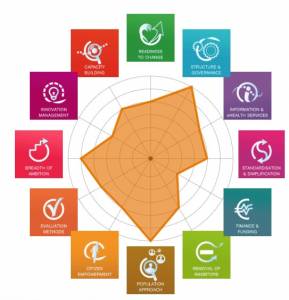
Self Assessment Basque Country (1) Insurance&Procurement Unit from Health Department
There is a clear strategic vision of the Basque Government towards the challenge of ageing, chronicity and dependency which has provided explicit support, leadership and capacities to transform the health and social care system towards integrated care in the Basque Country. Osakidetza has reinforced and extended this integrated approach.
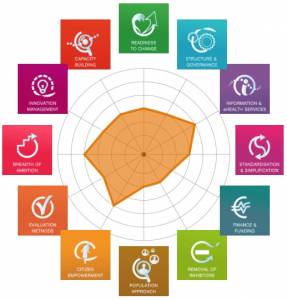
Self Assessment Basque Country (2) Health & Social care Coordinator, Basque Health Department
As a result, a number of processes and tools have been developed and implemented to support the integration of health and social care system. A plan to achieve an integrated care has been launched and the concept of ICOs has been introduced to address the consequences of fragmentation and lack of coordination between different levels of care. The objective is to achieve less fragmented, more coordinated, efficient and higher quality of care.

Self Assessment Basque Country (3) Economic Director of an ICO, Osakidetza
Self-assessment in the Basque Country
Reflecting the Basque Country’s ambitions in integrated care, a multidisciplinary and multilevel group of experts in healthcare integration was selected to assess the maturity of the region for the adoption of integrated care. All stakeholders were invited to complete the online self-assessment survey to provide their individual perceptions on the progress of integrated care in the Basque Country, using SCIROCCO tool. The outcomes of these individual surveys were captured in the form of spider diagrams, highlighting the region’s strengths and weaknesses in integrated care. Below some examples:
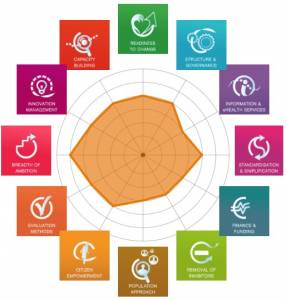
Self Assessment Basque Country (4) Director of Integration of an ICO, Osakidetza
From the diversity to consensus-building
The outcomes of the self-assessment survey provided the basis for the discussion of stakeholders with an objective to reach the consensus on the current state of art in integrated care across all 12 dimensions of SCIROCCO Tool. The spider diagrams reflect the diversity of perceptions of local stakeholder and the consensus that was reached at the workshop.
During the negotiations and consensus building, each stakeholder presented its spider diagram to their peers and shared the scores and justifications of each dimension. Negotiation process was straightforward, amiable and fast. The dimensions of “Structure and Governance”, “Funding”, “Breadth of Ambition” and “Population Approach” were mostly discussed.
The final spider diagram shows the maturity of the Basque healthcare system for integrated care, including the areas for improvement. The local stakeholders scored quite high across a number of dimensions such as Readiness to Change, Structure and Governance, eServices, Population Approach or Breadth of Ambition. In contrast, the domains of Innovation Management, Funding, Capacity Building and Standardisations proved to be more challenging for the local healthcare system.
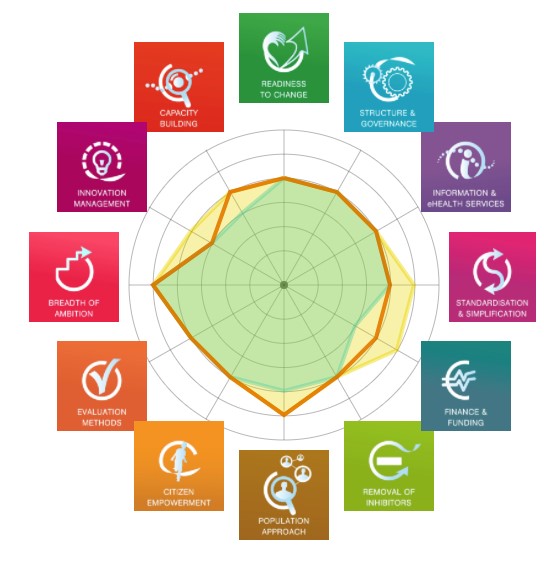
Result of Basque Country Consensus Building Process on Self Assessments
Basque Country’s experience in using SCIROCCO tool
- “The self-assessment process is a reflection exercise.”
- “When consensus is reached, extreme scores disappear and a more balance score is reached”.
- “The SCIROCCO self-assessment process has allowed us to contrast opinions with a group of multidisciplinary and multilevel colleagues, and to deepen in the current situation of the region in relation to integrated care, making us aware of where we are.”
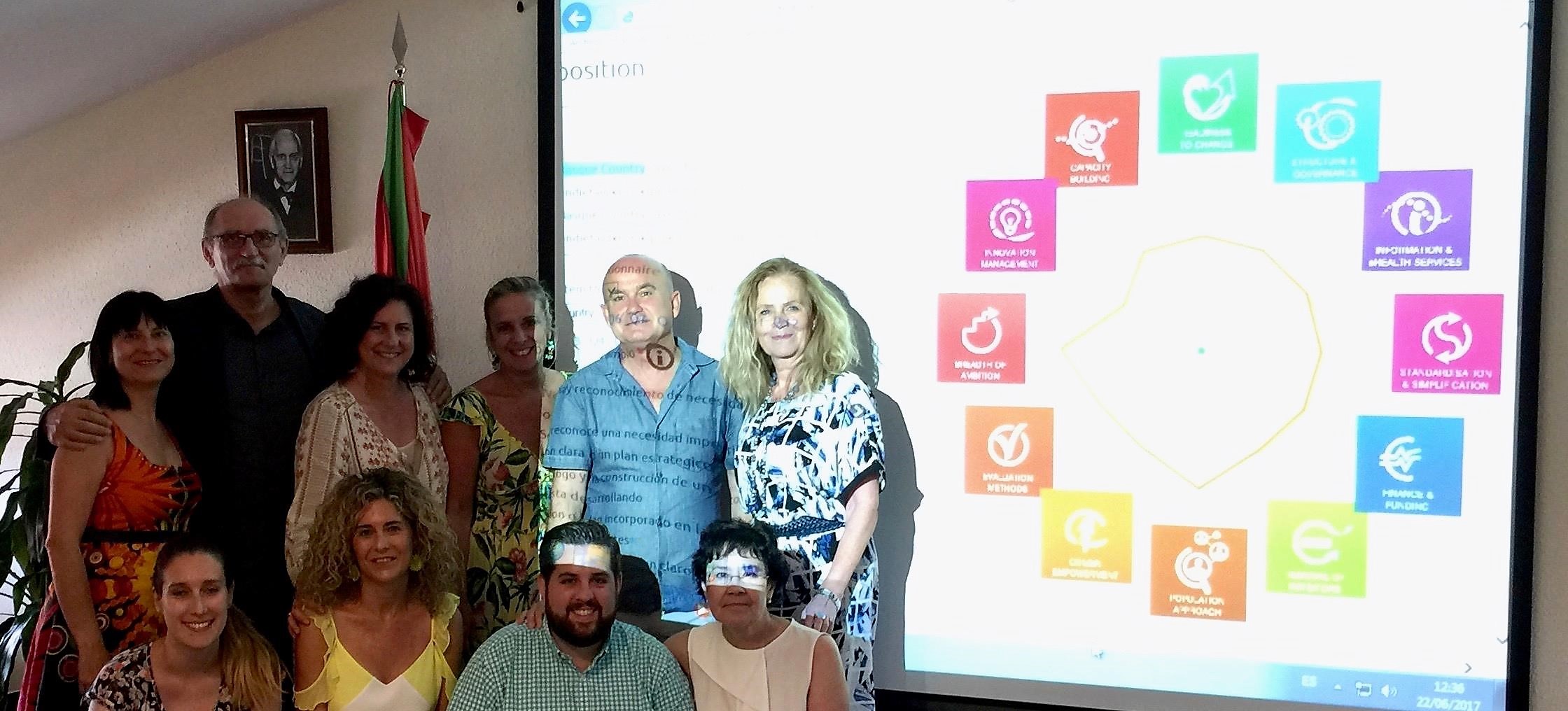
Basque Consensus Building Team
